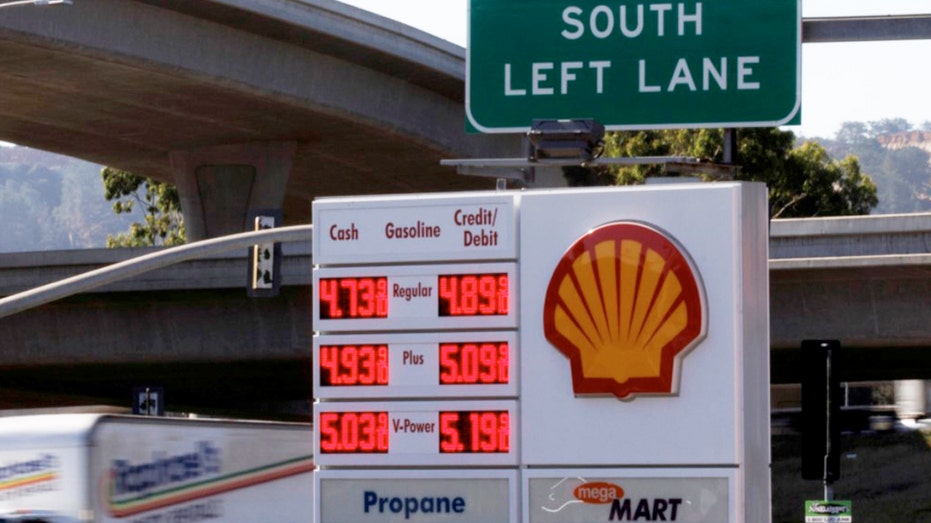Fed chairman contradicts Biden, says Russia’s Ukraine invasion not the main inflation driver
Can the Fed attain a soft landing as the central bank tries to curb red-hot inflation?
Thomas Hoenig, the former Kansas City Federal Reserve president, weighs in, arguing that a ‘recession is a fair call.’
Federal Reserve Chairman Jerome Powell on Wednesday appeared to contract President Biden’s repeated insistence that Russia’s invasion of Ukraine was the primary driver behind inflation in the U.S.
During a Senate Banking Committee hearing, Sen. Bill Hagerty, R-Tenn., got Powell to admit that inflation was high well before Russia’s Feb. 24 invasion of Ukraine.
Federal Reserve Chairman Jerome Powell speaks to the Senate Banking, Housing and Urban Affairs Committee, as he presents the Monetary Policy Report to the committee on Capitol Hill, Wednesday, June 22, 2022, in Washington. (AP Photo/Manuel Balce Ceneta / AP Newsroom) Hagerty noted that in December 2021, inflation has risen to 7% – up from 1.4% in January 2021, when President Biden took office. Since Russian tanks rolled across the border of Ukraine, inflation has risen incrementally to its current level of 8.6%. With these statistics stated, Hagerty asked Powell if he believed the war in Ukraine was the "primary driver" of inflation as the Biden administration has tried to portray. POWELL PLEDGES THE FED IS ‘ACUTELY FOCUSED’ ON TACKLING INFLATION "No inflation was high … certainly before the war in Ukraine broke out," Powell said. "I’m glad to hear you say that. The Biden administration seems to be intent on deflecting blame," Hagerty said, noting that as recently as Sunday, the administration "spread the misinformation that Putin’s invasion of Ukraine was the ‘biggest single driver of inflation.’" "I’m glad you agree with me that that is not the truth," Hagerty told Powell. Powell has sought to reassure the public that the Fed will raise interest rates high and fast enough to quell inflation, without tightening credit so much as to throttle the economy and cause a recession. FILE PHOTO: Gas prices grow along with inflation as this sign at a gas station shows in San Diego, California, U.S. November, 9, 2021. (REUTERS/Mike Blake/File Photo / Reuters Photos) The central bank's accelerating rate increases – it started with a quarter-point hike in its key short-term rate in March, then a half-point increase in May, then three-quarters of a point last week – has alarmed investors and led to sharp declines in the financial markets. CLICK HERE TO GET THE FOX BUSINESS APP Powell's testimony comes exactly a week after the Fed announced its three-quarters-of-a-point increase, its biggest hike in nearly three decades, to a range of 1.5% to 1.75%. With inflation at a 40-year high, the Fed's policymakers also forecast a more accelerated pace of rate hikes this year and next than they had predicted three months ago, with its key rate reaching 3.8% by the end of 2023. That would be its highest level in 15 years. The Associated Press contributed to this report. Source: Read Full Article


